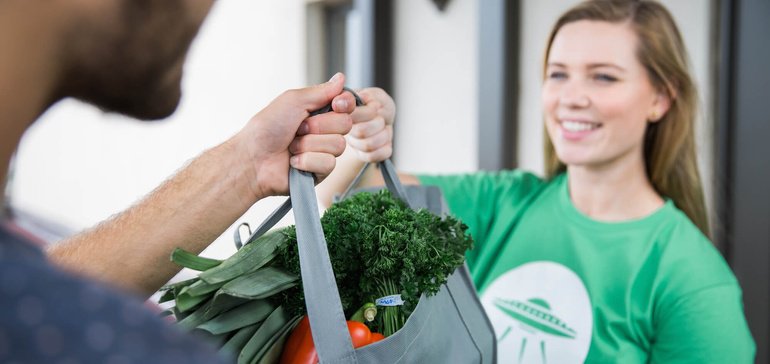Credit: Shipt
AUTHOR | Jessica Dumont
Source: www.grocerydive.com, September 2019
Dive Brief:
- Online grocery sales have grown 15% this year and now account for 6.3% of U.S. households’ total grocery-related spending, according to a new analysis from Brick Meets Click.
- Household penetration has increased to 25%, up 5% from last year, primarily due to increased expansion of both home delivery and pickup services. The average online order across ship-to-home, delivery and pickup has reached $70 this year, a growth of 6%. Looking at just home delivery and pickup, the average order grew to over $100.
- Purchase frequency for online grocery has remained flat from last year, with active online grocery customers averaging two orders in the last month. Home delivery accounts for 22% of all of all online grocery orders, followed by grocery pickup (28%), with ship-to-home capturing 50%.
Dive Insight:
Today, most retailers have some type of e-commerce presence, and as they move from a stage of launching to refining their online business, shoppers are starting to build bigger baskets and settle on their favorite providers.
Improvements in grocers’ e-commerce operations are driving results. Brick Meets Click found that with online providers offering a better shopping experience, the likelihood that shoppers will use a service again rose to 81% this year, up from 69% last year. Additionally, 90% of customers are reporting an improved ability to find all the products they want to buy, a 12% increase from last year.
While double-digit growth in online grocery sales is encouraging, online grocery purchasing still comprises a very small portion of consumers’ total grocery spending, and there is still a fair amount of purchase trial taking place, David Bishop of Brick Meets Click said in a statement. For example, the firm found that about one-third of active households had used a service for the first time for their most recent online order. The finding that purchase frequency has not increased is also concerning, and indicates people still don’t see e-commerce as a primary shopping lever.
Also notable is the finding that ship-to-home services are being used just as much as grocery pickup and delivery available same-day or next-day. This points to the primacy of Amazon.com, which is still the market share leader in online grocery, but it also indicates momentum for services like Kroger Ship and Costco’s two-day grocery delivery service. Amazon, Costco and other ship-to-home services do not include perishables, and their share of online grocery reiterates customer reluctance to order fresh items online.
Still, plenty of shoppers are willing to order fresh groceries online. Pickup and delivery are also more lucrative than ship-to-home, showing an order average that’s $30 higher and confirming for grocers that investing in pickup and delivery can pay off.
Typically, consumer preference for pickup versus delivery breaks down by demographic and geographic location. That could shift as delivery becomes more prevalent and more grocers add delivery membership options, similar to Walmart’s newly expanded Delivery Unlimited plan.

